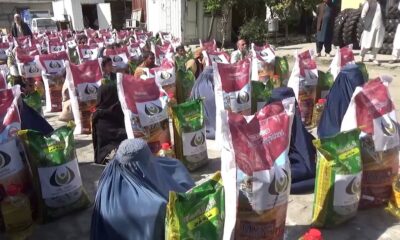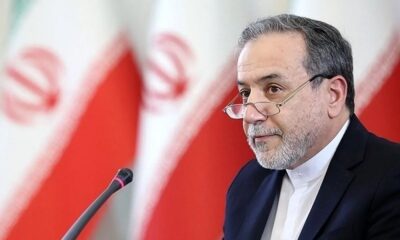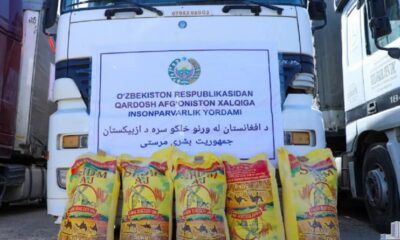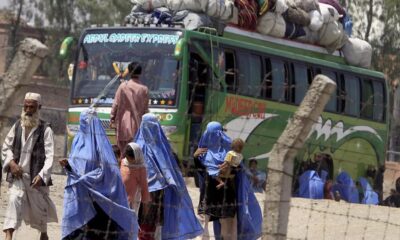Regional
Helicopter of Iran’s late president Raisi crashed due to weather, final report says
A preliminary report by Iran’s military had said in May that no evidence of foul play or an attack had been found during the investigation.
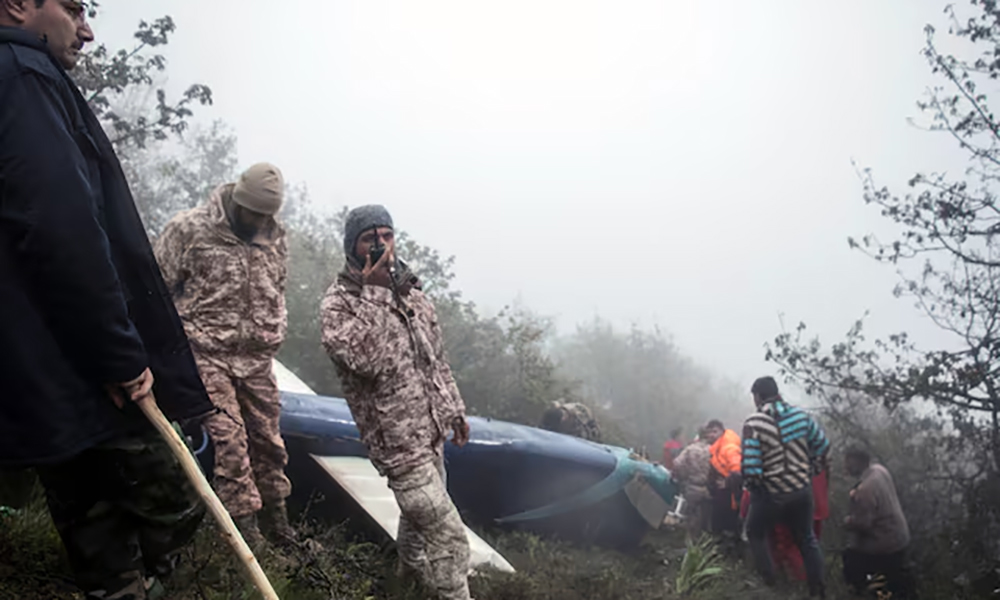
The helicopter crash in which Iran’s late President Ebrahim Raisi was killed was primarily caused by weather conditions that included thick fog, Iran’s state TV said on Sunday, citing the final investigation report on the incident, Reuters reported.
Iranian President Ebrahim Raisi, a hardliner who was seen as a potential successor to Supreme Leader Ayatollah Ali Khamenei, died when his helicopter crashed in May in a mountainous region near the Azerbaijan border.
“The main reason of the helicopter crash was complicated weather conditions in the region,” the final report concluded, according to Iran’s state TV.
A thick mass of fog caused the helicopter that was carrying Raisi and his companions to crash into the mountain, the report issued by a high committee charged by Iran’s military with investigating the incident said.
A preliminary report by Iran’s military had said in May that no evidence of foul play or an attack had been found during the investigation, read the report.
Regional
Trump’s offer of talks with Iran aims to avoid military action, US envoy says
Speaking separately on CBS News, the White House’s national security advisor, Mike Waltz, said the U.S. sought “full dismantlement” of Iran’s nuclear program.
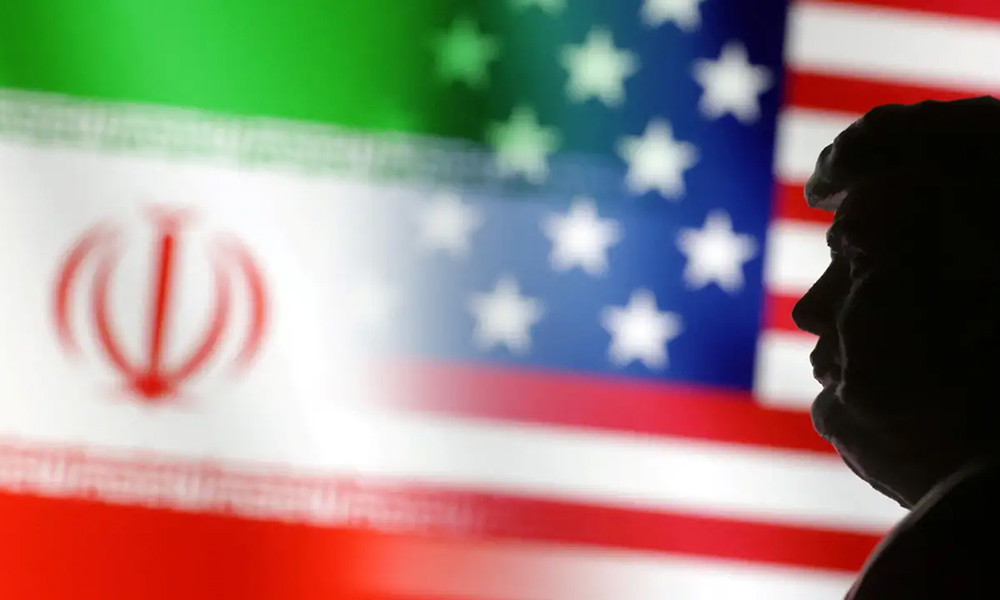
U.S. President Donald Trump’s outreach to Iran’s top authority, Supreme leader Ayatollah Ali Khamenei, on a possible new nuclear deal is an effort to avoid military action, U.S. special envoy Steve Witkoff said on Sunday.
“We don’t need to solve everything militarily,” Witkoff told Fox News.
“Our signal to Iran is let’s sit down and see if we can, through dialogue, through diplomacy, get to the right place. If we can, we are prepared to do that. And if we can’t, the alternative is not a great alternative.”
Trump said earlier this month that he had sent a letter to Khamenei, warning that “there are two ways Iran can be handled: militarily, or you make a deal.”
Khamenei rejected the U.S. offer for talks as “a deception,” saying negotiating with the Trump administration would “tighten the knot of sanctions and increase pressure on Iran.”
However, Iran’s foreign minister, Abbas Araqchi, said on Thursday that Tehran would soon reply to both the letter’s “threats and opportunities.” He cautioned on Sunday that talks with the U.S. are impossible unless Washington changes its pressure policy.
Speaking separately on CBS News, the White House’s national security advisor, Mike Waltz, said the U.S. sought “full dismantlement” of Iran’s nuclear program.
“Iran has to give up its program in a way that the entire world can see,” he said.
“As President Trump has said, this is coming to a head. All options are on the table and it is time for Iran to walk away completely from its desire to have a nuclear weapon.”
Tehran has long said the program is only for peaceful purposes.
U.N. nuclear watchdog chief Rafael Grossi said last month that time is running out for a deal to rein in Iran’s nuclear program as Tehran continues to accelerate its enrichment of uranium to near weapons grade.
While leaving the door open for a nuclear pact with Tehran, Trump has reinstated the “maximum pressure” campaign he applied in his first term as president, including efforts to drive the country’s oil exports to zero.
The U.S. has issued four rounds of sanctions on Iran’s oil sales since Trump’s return to the White House on January 20.
Regional
Hamas studies US ‘bridge’ proposal for truce as Israel escalates return to war
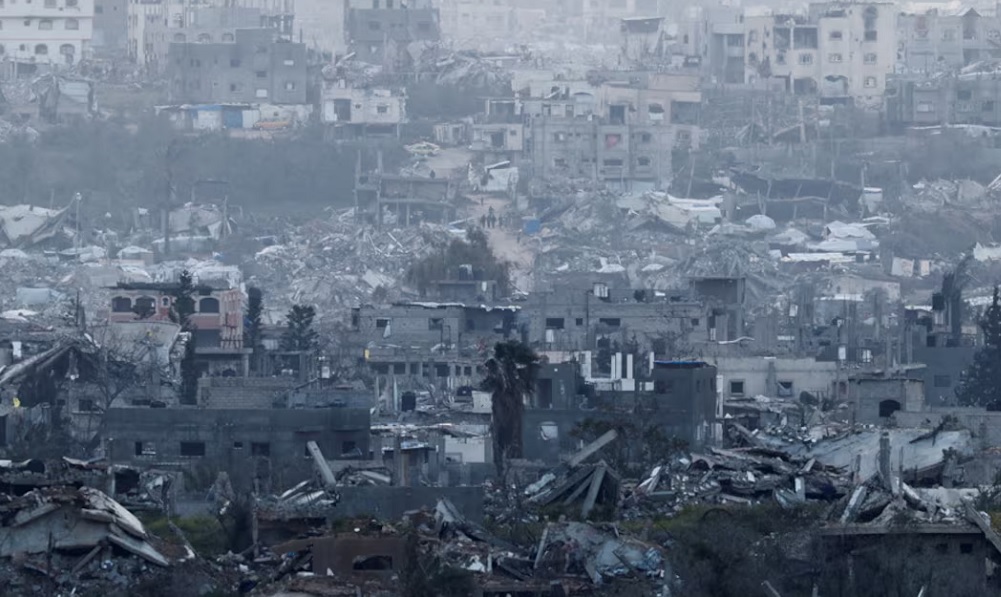
Hamas said on Friday it was reviewing a U.S. proposal to restore the Gaza ceasefire as Israel intensified a military onslaught to press the Palestinian militant group to free remaining Israeli hostages.
U.S. special envoy Steve Witkoff’s “bridge” plan, presented last week, aims to extend the ceasefire into April, beyond the holidays of Ramadan and Passover, to allow time for negotiations on a permanent cessation of hostilities, Reuters reported.
Three days after Israel effectively abandoned the two-month-old truce, Israeli Defence Minister Israel Katz said the military was intensifying its air, land and sea strikes and would move civilians to the southern part of Gaza.
Katz said Israel would continue its campaign until Hamas released more hostages and was totally defeated. Israeli airstrikes inflicted serious damage on Hamas this week, killing its Gaza government chief and other top officials.
But Palestinian and Israeli sources say Hamas has shown it can absorb major losses and still fight and govern.
Hamas said it was still debating Witkoff’s proposal and other ideas, with the goal of reaching a deal on prisoner releases, ending the war and securing a complete Israeli military withdrawal from the Gaza Strip.
A Palestinian official, speaking on condition of anonymity, told Reuters that Egypt also put forward a bridging proposal, but Hamas had yet to respond. The official declined to provide details of the plan, which he said was under consideration.
Two Egyptian security sources said Egypt had suggested setting a timeline for the release of the remaining hostages alongside a deadline for a full Israeli pullout from Gaza with U.S. guarantees.
The sources said the U.S. had signalled initial approval while Hamas’ and Israel’s responses were expected later on Friday.
A first phase of the truce ended at the start of this month, but Israel and Hamas could not agree on terms for launching the second phase. Hamas delayed further hostage releases and Israeli military action then resumed.
After two months of relative calm, Gazans were again fleeing for their lives under Israel’s new, all-out air and ground campaign, accompanied by another halt to aid deliveries.
Katz said the longer Hamas refused to free remaining hostages, the more territory it would lose. Of the more than 250 people originally seized in Hamas’ October 2023 attack on Israel, 59 remain in Gaza, 24 of whom are thought to be alive.
US BLAMES HAMAS FOR RESUMPTION OF ISRAELI ONSLAUGHT
Israeli airstrikes on Tuesday killed more than 400 Palestinians, one of the deadliest days of the 17-month-old war, and there has been scant let-up since.
On Friday, 13 people died. This included 11 people, among them six children, killed in Israeli airstrikes on houses in the Tuffah district of Gaza City in the enclave’s north, local health authorities said.
Two people were killed by tank fire in Abassan near Khan Younis in the south, according to Palestinian medics.
Hours later, the Israeli military said it had intercepted two projectiles from northern Gaza after alerts were activated in the Israeli city of Ashkelon.
Hamas’ armed wing claimed the attack, saying it was responding to Israeli “massacres against civilians” in Gaza.
Israel’s military reported it also intercepted a missile fired from Yemen after warning sirens sounded in multiple areas of Israel.
The Israeli military said it had killed the head of Hamas military intelligence in southern Gaza on Thursday. There was no immediate comment from Hamas.
The United States told the U.N. Security Council that Hamas was to blame for the deaths since hostilities resumed.
“Hamas bears full responsibility for the ongoing war in Gaza and for the resumption of hostilities. Every death would have been avoided had Hamas accepted the bridge proposal that the United States offered last Wednesday,” acting U.S. ambassador Dorothy Shea told the council.
The United Nations’ Palestinian relief agency UNRWA, one of the largest providers of food aid in Gaza, said it only had enough flour to distribute for the next six days.
“We can stretch that by giving people less, but we are talking days, not weeks,” UNRWA official Sam Rose told reporters in Geneva by video link from Gaza.
The humanitarian situation in Gaza was once again alarming, UNRWA said.
“Six of 25 bakeries that the World Food Programme were supporting had to close down,” Rose added.
“This is the longest period since the start of conflict in October 2023 that no supplies whatsoever have entered Gaza. The progress we made as an aid system over the last six weeks of the ceasefire is being reversed.”
Israel’s blockade has pushed up prices of fuel and essential foods, forcing many to ration their meals.
The war began after Hamas militants attacked Israeli communities near the Gaza border on October 7, 2023, killing 1,200 people, according to Israeli tallies.
More than 49,000 Palestinians have been killed in the ensuing conflict, according to Gaza’s health authorities, with much of the densely populated territory reduced to rubble.
Regional
Iran’s leader says Yemen’s Houthis act independently, warns against US action
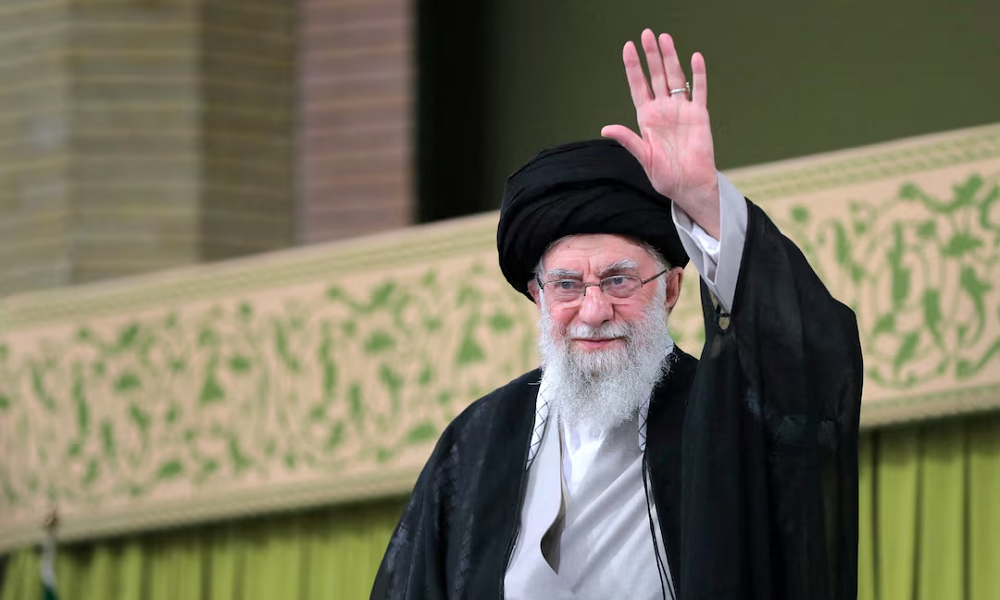
Iran’s Supreme Leader Ayatollah Ali Khamenei said on Friday that Tehran does not need proxies in the region and that Yemen’s Houthis, who are among the groups in the Middle East that Iran is aligned with, act on their own motivations.
U.S. President Donald Trump said on Monday he would hold Iran responsible for any attacks carried out by the Houthis, as his administration expanded the biggest U.S. military operation in the Middle East since he returned to the White House.
Over the years, Iran has been aligned with groups across the region that describe themselves as the “Axis of Resistance” to Israel and U.S. influence.
Those groups include Hamas, Lebanon’s Hezbollah and various Shi’ite armed groups in Iraq.
Americans, said Khamenei, “make a big mistake and call regional resistance centres Iranian proxies. What does proxy mean?”
“The Yemeni nation has its own motivation and the resistance groups in the region have their own motivations. Iran doesn’t need proxies,” Khamenei said.
“They issue threats,” added Khamenei, but “we have never started a confrontation or conflict with anyone. However, if anyone acts with malice and initiates it, they will receive severe slaps.”
Experts on Yemen, where the Houthis expanded control during years of civil war, say the group seems mainly motivated by its domestic concerns and support base.
(Reuters)
-
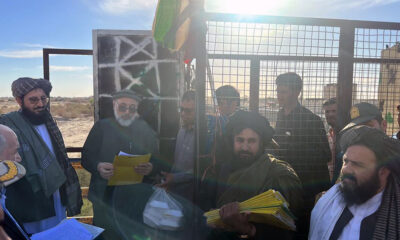
 Latest News5 days ago
Latest News5 days agoAfghan prisoners in Iran sent home
-

 Latest News5 days ago
Latest News5 days agoAfghanistan ranks last in World Happiness Report
-
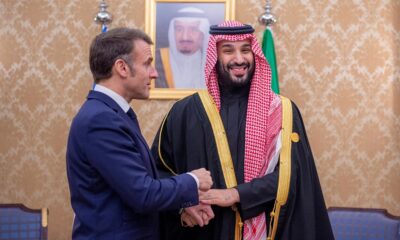
 Regional5 days ago
Regional5 days agoMacron and Saudi Crown Prince discuss Gaza, Ukraine peace process
-
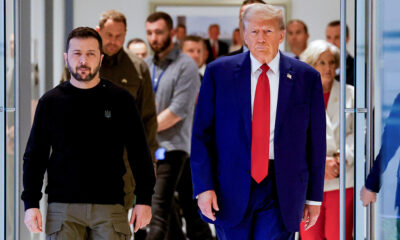
 World5 days ago
World5 days agoTrump, Zelenskiy pledge in phone call to work for end to war in Ukraine
-
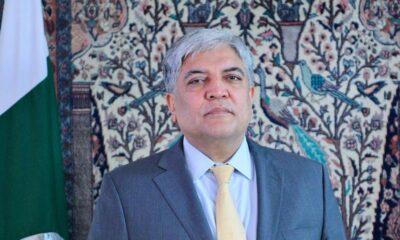
 Latest News4 days ago
Latest News4 days agoPakistan once again urges IEA to act against militants
-
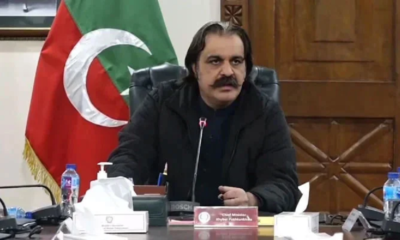
 Latest News5 days ago
Latest News5 days agoKhyber Pakhtunkhwa chief minister opposes military operations in the province
-
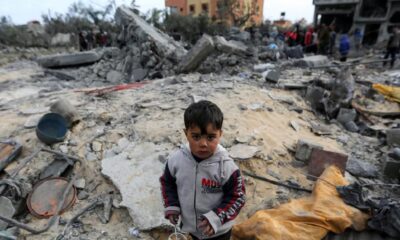
 Regional4 days ago
Regional4 days agoAt least 91 killed in Gaza as Israel abandons ceasefire, orders evacuations
-

 Sport4 days ago
Sport4 days agoAFC Beach Soccer: UAE thrash Afghanistan 7-1 in opener


